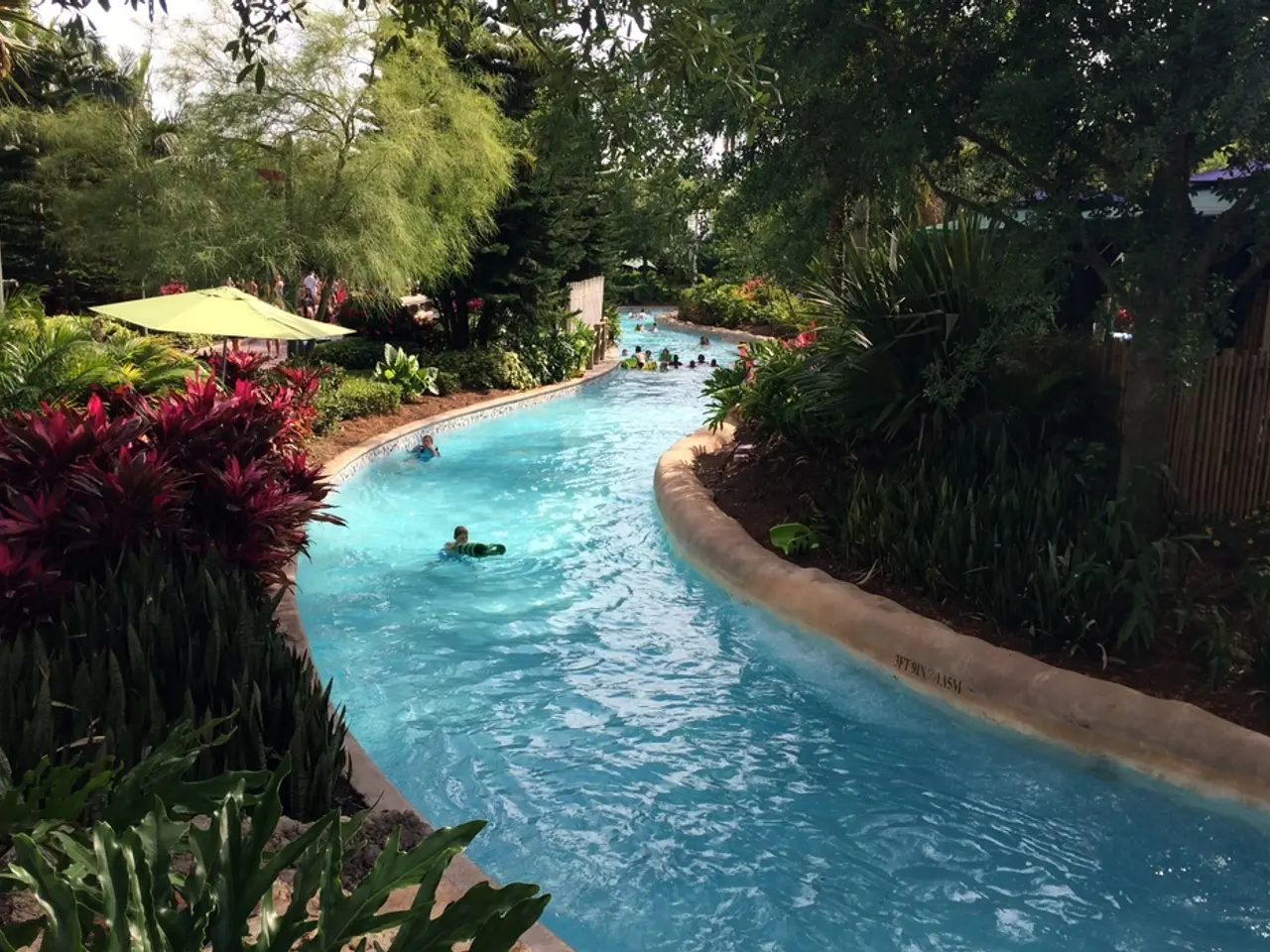Swimming pool origins and evolution - Rich account of the development and evolution of swimming pools across various eras
Swimming pools, a beloved fixture of modern leisure and sport, have roots that stretch back thousands of years, evolving through various ancient civilizations and transforming into the recreational and competitive facilities we know today. From the Great Bath of Mohenjo-Daro to the Olympic Games, swimming pools have played a significant role in cultural development across countries like Germany, France, the USA, England, and Rome.
In antiquity, swimming pools were integral parts of daily life and ritualistic practices. The ancient city of Mohenjo-Daro, dating back to around 2800 BC, featured a large brick pool called the Great Bath, one of the earliest known swimming pools. Greek and Roman societies also embraced swimming, with swimming being both a leisure activity and a necessary skill often part of education and military preparation.
The Romans, in particular, advanced the concept significantly, constructing distinct swimming pools separate from their famous baths. The first heated pool is credited to Gaius Maecenas in the 1st century BCE. Swimming was integrated into military training and social life, illustrating its early importance.
The 19th century marked a turning point for swimming in England, with the formalization of swimming as a sport and public health activity. The National Swimming Society of Great Britain was established in 1837, hosting the first competitive swimming events. France hosted the inclusion of swimming in the modern Olympic Games in 1900, reflecting its growing status as an internationally recognized sport.
In the USA, swimming instruction expanded notably in the early 20th century, especially under the American Red Cross starting in 1916. The military also played a key role in advancing swimming techniques during the World Wars. Germany, with its strong tradition of public baths, contributed to the evolution of pool design and swimming culture in Europe.
The 20th century saw the development of standardized competitive swimming pools, technological advancements like wave-killing gutters, racing lane markers, and underwater stroke analysis tools, all contributing to improved performance and safety. The 2008 Beijing Olympics highlighted the impact of technology on swimming, with high-tech bodysuits leading to numerous world records.
However, swimming pools globally face challenges related to climate change, including water scarcity, increased evaporation rates, and higher energy demands for heating and filtration. Future pool designs and management strategies are trending toward sustainability, with a focus on water recycling and rainwater harvesting, solar heating, energy-efficient pumps, pool covers, and innovative materials to reduce evaporation and heat loss.
In countries like Germany and France, which have strong environmental policies, the emphasis is increasingly on eco-friendly public and private pools. The USA and England are also adopting greener technologies, although widespread implementation varies by region and regulation.
The documentary "Pool Stories - The Dream of Cool Water" explores the history of swimming pools and their future in a time of water problems due to climate change. The documentary will be aired on Arte on Thursday, 10th July at 8:15 PM.
From the ancient Roman baths to the glamorous private pools of Hollywood stars like Frank Sinatra and Ava Gardner, swimming pools have long been symbols of luxury and sociability. Yet, it is more advisable and community-minded to visit public swimming pools and have fun there. After all, swimming pools are not just about cool water; they are about shared experiences, community, and the enduring allure of aquatic leisure and sport.
Swimming pools, symbols of luxury and sociability since ancient Roman baths, are not just about cool water but also shared experiences, community, and the enduring allure of aquatic leisure and sport. In the face of challenges related to climate change, it is imperative to adopt sustainable pool designs and management strategies, such as those embraced by countries like Germany and France with strong environmental policies.
As lifestyle choices and home-and-garden trends continually evolve, eco-friendly public swimming pools become more meaningful, providing a fun and community-minded alternative for aquatic leisure.




